#this is why i need a podcast
Note
Hello, recently you answered an ask about how Hamilton reacted to the Hamilton-Madison fallout, and one of the things you said was "These men were very crucial figures in American law, which shows that, unlike men like Jefferson, he [Hamilton] was very selective in who he chose to associate with when it came to his work."
Was Jefferson particularly indiscriminate when it came to finding collaborators, or was Hamilton particularly selective (or a little bit of both)? Could you provide some examples for this contrast?
hello first of all, the structure of your ask had me literally salivating screaming crying on the floor because this is such a wonderfully structured ask and it is the perfect formula to get an in depth response bc there’s so much i could talk about here. i love you. anyway-
Let's break this down to each dude. First, the worst dude, Thomas "freak" Jefferson. Jefferson's political career began when he joined the House of Burgesses, which, as the name implies, is a house of Burges (its a legislature). His first major publication was A Summary View of the Rights of British America, a Revolutionary work of literature that called King George III a cunt in formal language, was done entirely by himself, and it was rejected by his contemporaries for being too radical. This gained him a reputation for being a blue haired liberal.
Source: The American Heritage Book of the Presidents and Famous Americans (book 2)
Jefferson would go on to write The Causes and Necessity of Taking up Arms with John Dickinson in July, 1775 to, yk, explain the causes and necessity of taking up arms against the British. John Dickinson was a very well known politician, being a member of the Continental Congress and one of the elite group of Americans who had the chance to be educated in England. Both Jefferson and Dickinson were known revolutionary voices, despite the differences of opinion that would arise between them in the following debate on independence. They were also both members of the Second Continental Congress.
Source: American Battlefield Trust, Delaware Historical and Cultural Affairs
The question of why Jefferson worked with Dickinson is most relevant to this ask. And the answer, in my opinion, is just because it was convenient. The Continental Congress was the best- "best"- men of each state coming together to represent their respective homelands. Dickinson and Jefferson most likely had conversations about the subject they would go on to write about, and decided to write it down and publish it for public benefit. We'll come back to this later.
Okay, now the elephant in the room: the Declaration of Independence. I find this subject so boring so bear with me. Jefferson was chosen by the Declaration committee (consisting of John Adams, Benjamin Franklin, Thomas Jefferson, Robert Livingston, and Roger Sherman) as he was already known as a Revolutionary writer and one of the best educated of them. He wrote the original draft on his own- well, technically- and then it was edited by the rest of the committee, and then by the rest of Congress.
Oh, but Henry! You said technically! Why? Well, dear reader, I'll tell you, be patient, jesus fucking christ. Jefferson highly based the Declaration off of Richard Henry Lee's resolution calling for independence in the Continental Congress, but mainly off of the philosophies of John Locke. That famous phrase we all know was almost word-for-word the writings of John Locke. I even once wrote an essay on how Jefferson essentially plagiarized John Locke in my sophomore government class.
"We hold these Truths to be self-evident, that all Men are created equal, that they are endowed by their Creator with certain unalienable Rights, that among these are Life, Liberty, and the Pursuit of Happiness..." -Thomas Jefferson, Declaration of Independence, July 4, 1776
Source: my pocket Declaration/Constitution LMAO i really busted that out like an absolute nerd
"All mankind... being all equal and independent, no one ought to harm another in his life, health, liberty or possessions." -John Locke, Second Treatise on Government, 1690
Source: brainyquote.com and a suspicious PDF of excerpts that I narrowly avoided a virus while accidentally downloading
I think that the Declaration is a pretty good example of how Jefferson, and 18th century American government, usually performed. This famous document was created by committee, and through education on 17th century philosophy. There were not multiple men working on the original draft of this, and the men who did work on it were not selected by Jefferson, and his major works are almost entirely attributed to him alone. He'd go onto write other historical documents such as Notes on Virginia and Anas (which are a more interesting and complex document) in this same form.
Source: Alexander Hamilton by Ron Chernow, Founders Online
He did consult with other men when it came to information and intelligence on political enemies later in his political career. These men were mostly hyper-relevant Democratic Republicans, who tended to be rich, southern landowners (aka slaveholders), at least those who associated with Jefferson. The most iconic of these were, of course, James Madison and James Monroe. Jefferson frequently consulted them, and Monroe (allegedly) gave Jefferson copies of the documents Hamilton showed to him to prove he had not been speculating with James Reynolds, but had actually been sleeping with his wife.
Source: Alexander Hamilton by Ron Chernow, The Three Lives of James Madison by Noah Feldman
To summarize, Jefferson was not necessarily indiscriminate with who he associated with, and he didn't even really work that much with other men on his major writings. However, we can see a definitive pattern of Jefferson only really associating with other members of his class, neither below or above him. And this just very simply makes sense. Jefferson, as did the rest of the 18th century, believed that there shouldn't be any cross contamination between the social classes. He also believed that the only really smart people were in his class. And he wasn't aggressive about this, it's just a passive belief due to the way society was structured.
UNTIL!
Alexander Hamilton was literally opposite to Jefferson in every sociocultural way. In Jefferson's eyes he was an ambitious upstart who rose through the ranks, defying the social order that kept society from collapsing.
You'll hear a lot of people say that in forming America, the Founding Fathers had undone this rigid social class system, but that really isn't true. The class system in Europe was entirely different than the one that developed in America, but it still definitely existed in some form. Without the court system, America formed a loose sort of aristocracy that depended on land ownership and/or success in the mercantile business. In Europe, you'd see members of the clergy having their own class, but in America, it was entirely based on wealth, and less on birthright, but if your parents were not wealthy, the only way you could become wealthy was by getting in on some kind of get-rich-quick scheme, like owning a plantation or being a lawyer.
What made Hamilton different from this was that Jefferson, and other enemies, could literally watch in real time as he rose through the ranks. He could see him go from a captain in the artillery, known for his bravery in the New York campaign (someone who would eventually be forgotten), to Washington's aide-de-camp (okay... but he'll probably still fade into obscurity), to a member of the Confederation Congress (oh! well, okay, but that doesn't particularly mean anything, this is probably the highest he'll get), to the only New York delegate in town for the Constitutional Convention and the only person from New York to sign it (well that'll get him in the history books...), to the FIRST SECRETARY OF THE TREASURY OF THE NEW US GOVERNMENT (WHAT THE FUCK HOW DID HE FUCKING DO THAT WHAT THE FUCK GET HIM OUT).
Source: Alexander Hamilton by Ron Chernow
So, let's talk about Hamilton's political career now, specifically through tracking his writings.
One thing the musical gets right is that Hamilton DEFINITELY utilized anonymous pamphlet publishing throughout his political career. And these are some of my favorite documents ever. From A Farmer Refuted to The Monitor to The Publius Letters to Pacificus, Hamilton absolute served irreparable cunt in all of these writings, and there are more than what I've listed, I just haven't finished my chronological list of Hamilton's published works.
"I'll use the press, / I'll write under a pseudonym, you'll see what I can do to him [Jefferson]." -Alexander Hamilton in Hamilton by Lin Manuel Miranda
Source: Blumenthal Performing Arts
All of these anonymous publishings had some things in common that I've used to categorize them:
A target (usually a person he didn't like and thought was immoral)
A core lesson (typically a political stance he was taking at the time that he wanted to defend and garner support for publically)
A newspaper publisher that was symbolic or strategically important in some way (either an enemy newspaper, and up-and-coming newspaper, an old friend's newspaper, etc.)
multiple editions
2-3 coauthors/beta readers
Almost each one of these publications follows this pattern, though number 5 tends to be the least common among all of them. But, since his college days, Hamilton would ask for his friends' input on his writings (whether or not he accepted their advice is not confirmed). Before he would give his college-era speeches, he would consult with the small debate group he and his friends made before he gave those speeches. When he was writing The Publius Letters, he most likely consulted with his lover, John Laurens, on the subject matter, as Laurens had close connections with congress, and the target (number 1 on the above list) was Samuel Chase, a congressman who had basically scammed soldiers out of food, causing many to starve for a prolonged period.
Source: Alexander Hamilton by Ron Chernow, John Laurens and the American Revolution by Gregory D. Massey
Like Jefferson, Hamilton had his magnum opus, and the influence of others played a major role in defining the document. Hamilton would ask other men, including William Duer, and Gouverneur Morris to write this document, but ultimately settled on John Jay and James Madison. This was, of course, The Federalist.
William Duer was related to Hamilton by marriage, as they married a set of cousins. Duer was educated in England and worked for the East India Company, which gave him a very good resume to be one of Hamilton's coauthors. However, the two submissions Duer made for The Federalist were rejected. Gouverneur Morris was a blue-blooded politician who gave the most speeches at the Constitutional Convention, a whopping 173. He spoke multiple languages and had been educated at King's College, which is now the ivy league Columbia. Morris was too busy to contribute to the project.
John Jay was the first coauthor selected. He had been the main draftsman of the New York State Constitution, a negotiator of the Treaty of Paris (1783), and was another alumni of King's College. He later became the first chief justice of the United States Supreme Court, and negotiate a treaty with Great Britain. Hamilton often called on him in regards to political matters, and the two were close, lifelong allies. Jay only wrote five of the 85 Federalist essays, because he was hit in the head with a fucking brick during the Cadaver Riots.
Source: Alexander Hamilton by Ron Chernow
The other principal author of The Federalist was James Madison. James Madison, in my opinion, was the most qualified to write The Federalist, despite his later delusions about the Constitution (which were largely the result of Jefferson's influence on his opinion but that's neither here nor there). James Madison was educated at what was considered the greatest educational institute in 18th century America: Princeton (then called the College of New Jersey). Madison was the reason Hamilton wasn't able to take an expedited course to his degree, because Madison had attempted to finish his four year education in two years, and had a nervous breakdown... fun fact...
But, still, he got his law degree from Princeton, and was in several legislatures, including the Virginia Governor's council where he met Jefferson. And of course, he was the author of the Virginia Plan, which was the foundation of the US Constitution of 1787. His notes on the Constitutional Convention are the most complete set of notes, and he was there every fucking day. So yeah, James Madison knew the Constitution pretty well, even if he eventually cared too much about states' rights to recognize what was blatantly written in the Constitution, and maintained that viewpoint until his presidency.
Source: Alexander Hamilton by Ron Chernow, The Three Lives of James Madison by Noah Feldman
The Federalist was not as evenly divided between the authors as Hamilton intended, since he could not shut the fuck up, but that's not the point. The point is that the men he sought to be his coauthors had several things in common: they attended prestigious educational institutions and had long histories of Revolutionary work. Reading of these men's person histories reads like you're going through a company's qualifications for their employees. Because it almost was except they weren't getting paid. Hamilton sought out these men based on their qualifications, and, as you can see by William Duer's rejected submissions, he had a high standard that they had to fit for him to affix his name next to theirs (which he didn't do until the weeks leading up to his death because he knew he was gonna die but that's a topic for another time).
I KNOW THIS IS LONG BUT IM STILL FUCKING GOING BECAUSE THIS IS WHAT HAPPENS WHEN YOU GIVE ME THE CHANCE TO ANSWER COMPLEX QUESTIONS ABOUT HISTORY INSTEAD OF THE SAME FOUR SHIT SUBJECTS THAT EVERY HISTORIAN COVERS IN THEIR BOOKS THANK YOU OKAY
This pattern of finding qualified contributors to his works continued throughout his life. Now, idk if you know this, but Hamilton was actually planning another The Federalist-style publication right before his death and i am LITERALLY SO EXCITED TO TALK ABOUT THIS
Hamilton told his visiting friend James Kent that he wanted to look through all of history and analyze government and the various forms it took throughout all of written history. Mirroring The Federalist, he intended to invite six to eight authors, including John Jay, Gouverneur Morris, Rufus King, John M. Mason, and James Kent. He thought that each of these men would write about the subjects in which they specialized (Kent on law, Mason on theological history, etc.) Hamilton would be in charge of writing a synthesis on the previous volumes.
"The conclusions to be drawn from these historical reviews he intended to reserve for his own task and this is the imperfect scheme which then occupied his thoughts." -Chancellor James Kent
Source: Alexander Hamilton by Ron Chernow
As you can imagine, these additional dudes followed the pattern shown above for Hamilton's qualifications for his coauthors, especially for a project this big. I mean, if this could have happened, it would have been literally incredible. I did the calculations, and it would have taken Hamilton five years after 1804 to get rid of all of his debts. If he had lived for that length of time, he could have started on this project, and alleviated the debts that later plagued his family. But that ties into my other theories on Hamilton's death, and that is just too weighty of a subject to get into in a post that's already this long.
To wrap this all up, the conclusion we can draw here is really just related to the class differences between Hamilton and Jefferson. Alexander Hamilton was not bound by a lack of social mobility in the 18th century, since he completely decimated that concept by his existence, which allowed him to view his co-contributors more objectively and more selectively. He handpicked those who he worked closely with based on their qualifications and their experience. His categorization of their abilities in that last example shows that he specifically sought them to speak on subjects they were most acquainted with.
Jefferson, on the other hand, didn't have that kind of social mobility, nor did he desire it. Jefferson stuck with his peers, who were mostly all lawyers of the same religion and political beliefs. While I'm not saying Hamilton was going around and writing alongside Democratic Republicans, he certainly didn't pick those he worked with based on like-mindedness or status. He chose them entirely on the basis of their revolutionary resumes, and that is really the difference we see in these two men's respective political careers. Was that the reason Jefferson was president and Hamilton wasn't? Definitely not. Was that the reason they didn't get along? Well, it certainly didn't make them like each other. Does it make Hamilton smarter? No, surprisingly. Do I like Hamilton more because of this? No comment.
I know this is lengthy, but I've literally been brewing up historical theory in my head for the past six months without having any outlet for it besides ranting at my parents and scribbling in the margins of Alexander Hamilton by Ron Chernow (as you can tell by my sources). I genuinely cannot say how much I appreciate this kind of question, because it not only gets me thinking, but it allows me to remember why I got into history in the first place, and why I want to spend the rest of my life educating people on the wonderous world of pussy politics between middle aged men that are so decomposed, the matter that made up their bald ass heads is probably in your drinking water (have fun thinking about that). Anyways, thank you for the ask and I hope you got enough examples :3
#alexander hamilton#john laurens#history#amrev#thomas jefferson#american history#founding fathers#gouverneur morris#james madison#john jay#james kent#early 19th century#18th century#1790s#hamilton#long post#asks#i have spent. four and a half hours on this post SJFKHS#could be more actually#this is why i need a podcast#this is the kind of thing that would be an hour long discussion rather than a tumblr post#that was fun#...what do i do with my life now
47 notes
·
View notes
Text

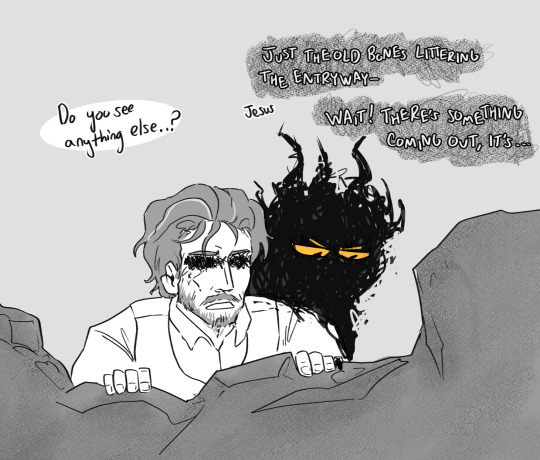


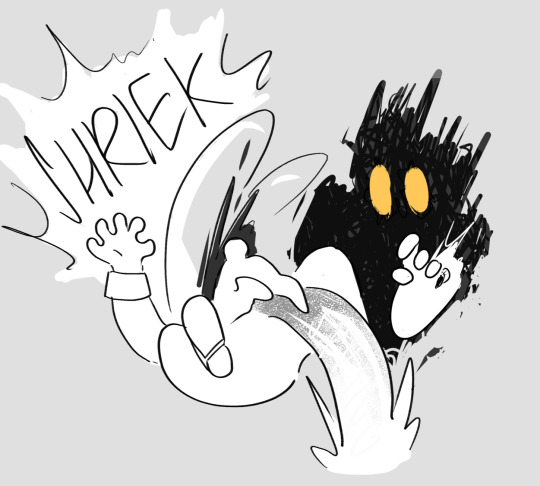
sadly Arthur can't make friends with every cute woodland creature he comes across in the medieval countryside I can't believe the setting for season 5 has been out for over a month and I haven't seen a single monty python reference yet I guess I'll do it myself
in the spirit of choose-your-own-adventures here's an alternative timeline



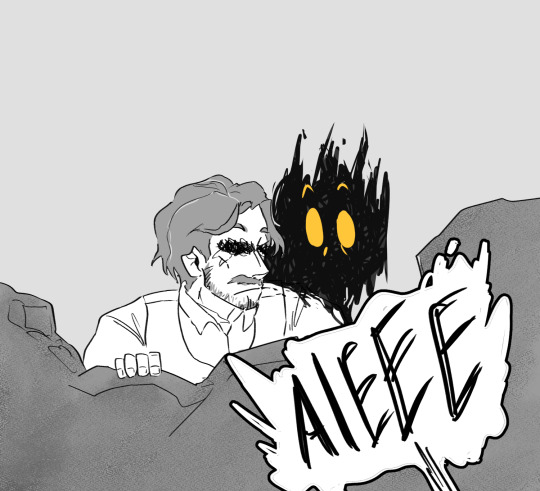

#does discussing s5's setting count as spoilers real talk#it's been known for well over a month by this point right#malevolent#malevolent podcast#mp#arthur lester#john doe#monty python#monty python and the holy grail#malevolent spoilers#Not really but like?? I guess to be nice??#oh god 2am a return to form#wasn't originally planning to do two comics but i kind of liked both gags#with john describing the Horrors and arthur getting mauled#both are good fun so figured why not Really stay up later than I need to
333 notes
·
View notes
Text
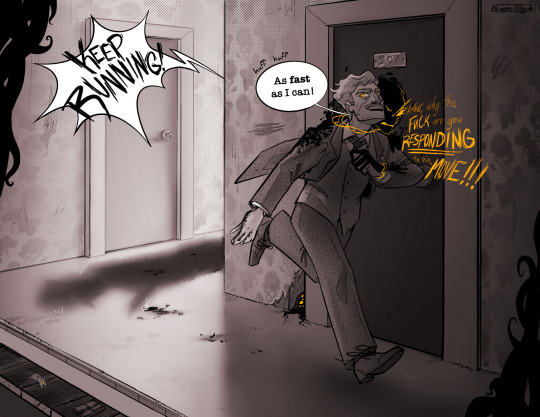
I hope you’re taking this seriously.
#malevolent#malevolent podcast#arthur lester#john doe#malevolent fanart#my art#no I’m not still avoiding solidifying my Collins design why would you even say that#anyway I do have my part 34 art but all of my sketches just got more and more complicated until they just needed full pieces#and I finished this one first#malevolent part 34#malevolent spoilers#fan art
982 notes
·
View notes
Text

hot john rights (closeups under the cut)
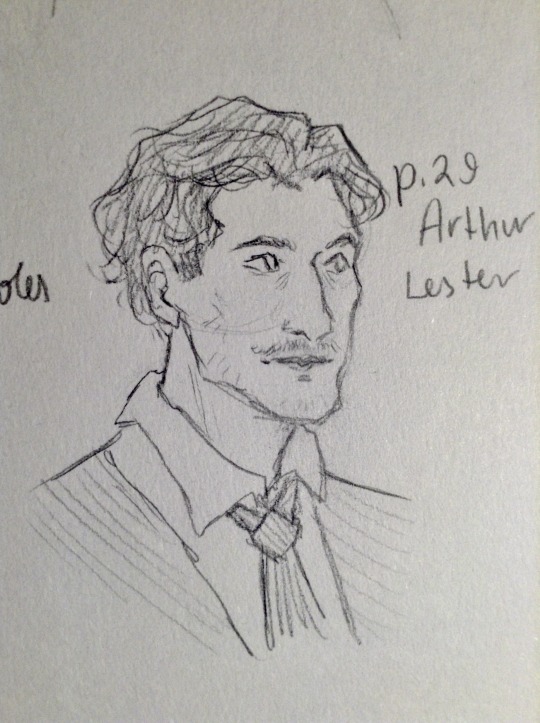
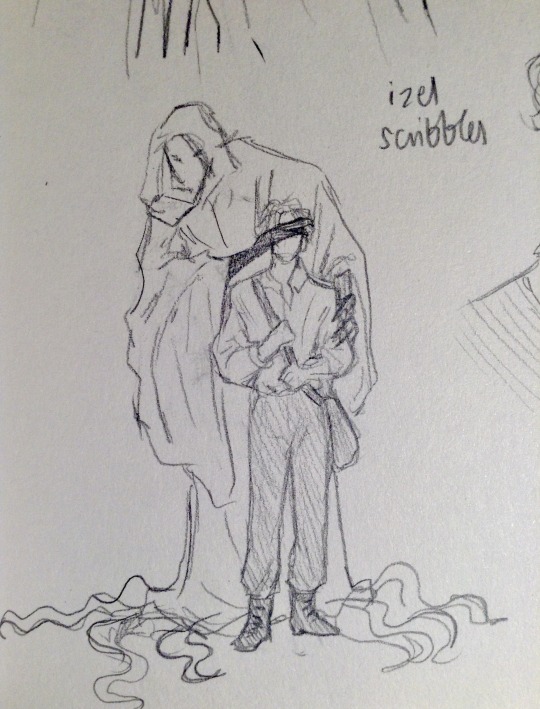
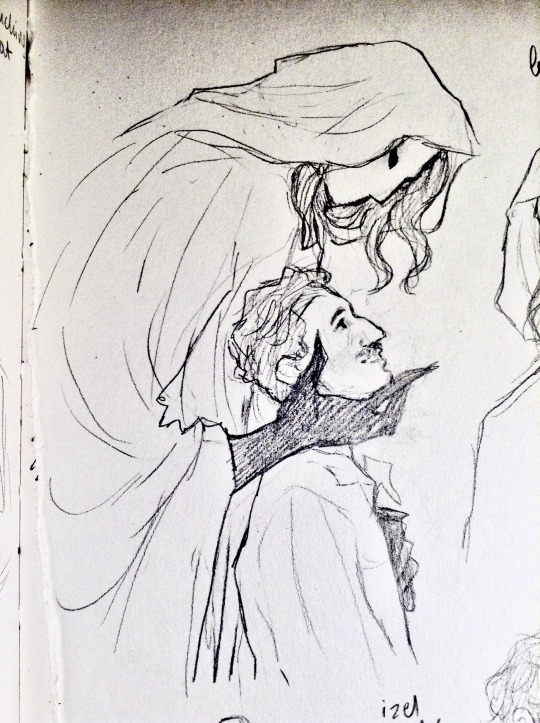

helpful graphic to illustrate their relationship
#still working on john leave me alone#arthur with a mustache seems strange to me but okay#why must this podcast ruin my life so#part 28??? are you kidding me??? actual tears#then beginning of 29 is a comedy skit (i need them to go see that movie together or i will bite something)#jarthur#john doe malevolent#arthur lester malevolent#arthur lester#john x arthur#izel scribbles#art#artists on tumblr#sketchbook#drawing#traditional art#pencil#pencil sketch#sketches#sketchbook page#small art blog#malevolent pod#malevolent fanart#malevolent#malevolent podcast#harlan guthrie#arthur x john
181 notes
·
View notes
Text
ah yes, the sweet sting of rejection from a billion dollar corporation who believes that "action stories don't appeal to romance audiences", welcome back my old familiar friend
#personal#writing#this was the EXACT problem I ran into with my gay outlaw story#and why I was just like FINE IT WON'T BE SCRIPTED IT'LL BE A BOOK#(and I mean who knows if it'll sell as a book)#(but it was NOT selling as a podcast)#how do I tell these companies that there's a whole website of people who love both action and romance#how do I explain that these people pull ships from the barest two second looks in action movies “aimed at men”#it's the conflation of romance = ladies and action = men for me#that's what really makes me roll my eyes#companies being like 'sorry lauren we just don't think people really into romance are into action'#HI I'M SITTING RIGHT HERE YOU'RE TALKING TO ME#my favorite movie is mad max and most of what I read is romance#I play violent action video games and I have a pathological need to ship#we exist#and we are legion#ANYWAY#might delete later
391 notes
·
View notes
Photo

little arthur malevolent lester portrait because my brain is full of him
#WHY DID NO ONE TELL ME I MISSPELLED ARTHUR (edited now)#I KNOW THAT'S AN ESSAY IN THE TAGS BUT I HAVE SO MANY THOUGHTS#i love him#i need to make him look more pathethic and sad next time#and more scrawny maybe#he's just too presentable#i dont have time for more art recently so have this at least as my little break from uni work#i actually like how it turned out tho#i need to paint more loosely like this in the future#also ive been staring at leyendecker when drawing this can you tell by the shading on the cheek#and yes he has white hairs!!!!#and eyebags and a little bit of wrinkles in the corners of his eyes#i need to draw it better next time but that's how i see the guy#i really want to draw his lighter too because i've been thinking too much about its design and also i want to render some objects#arthur lester#arthur malevolent#malevolent podcast#malevolent fanart#poor sad british man#myartstuff
1K notes
·
View notes
Text
Why did arthur decide that “good dog” was an appropriate phrase to use in a hostage situation? This is not the time nor the place for that dude. Calm your ass down.
#malevolent podcast#malevolent spoilers#i reread the transcript#when i first listened to that episode that line hit me like a freight train#AND THEN HE WAS LIKE ‘do i need to whistle?’#WHICH. AGAIN. WHY WAS THAT NECESSARY IN A HOSTAGE SITUATION#compLETELY batshit insane of him
156 notes
·
View notes
Text
ok to be fair when i watched utena for the first time at 16 i definitely didn't fully Get It. like i still walked away like Woah that was life changing but i missed some very big themes/points and that's why i think rgu really really improves upon and deserves multiple rewatches. and i also think that watching the apocalypse arc for the first time becomes very personal, you take away what you need to take away from the show (or at least i did at 16). so i WANT to give grace to people who may have misinterpreted rgu because it's a complicated show but if people are writing blogs or videos or putting out long form media called stuff like UTENA EXPLAINED 😱 and still fucking miss the point um lol actually

#utena#this is not about somerton specifically but i remember being on the Road Trip From Hell#my first ever 9 hour drive in the middle of a blizzard. and jules was there trying to keep me not insane so we listened to a podcast ep#rgu#like an utena explained one and it pissed us off so much that it did actually distract me from the zero visibility fuck god why are#snow chains illegal in my state when we NEED THEM.......#ANYWAY whatever
162 notes
·
View notes
Text
I know we’re all focused on that one reply but this one’s killing me

#DANIEL OMFG#prince of our hearts#constantly trying to get shit done#when he’s fully retired one day and can legally talk about it I need him to sit down on like a podcast#and I NEED him to spill on the buisness side of things. I mean#I know why I quit YouTube exists#but girlie I need the management GOSSIP#dan and phil#dan howell#daniel howell#phil lester#dan and phil games#dnpgames
94 notes
·
View notes
Text
This is a kind of weird question, I know, especially because networks are fluid (I don't entirely know what they do besides advertising). Like, Adventures in New America and It Makes A Sound used to be part of Night Vale Presents, but now NVP seems to be nearly entirely made up of shows by the WtNV crew. Mischa Stanton helped found The Whisperforge, but now their podcasts aren't part of it. Meanwhile Hi Nay has recently joined Rusty Quill and its feed still works, but when Midst joined Critical Role they took down their feed and website and started new ones of both.
#I didn't include Critical Role since it seems to be just CR with Midst thrown in?????? I am still unclear why Midst partnering with CR meant#it needed a new feed and website.#Technically A Poll#Podcasts#I'm sorry if I have revealed myself to not know the difference between a network and a production company with this poll.#Like is Geekly Inc a network?????#Is SAYER even still associated with them?#Is this poll just an excuse to bring up PPN????? (Yes.)#Podcast Networks
214 notes
·
View notes
Text
bae: you better not be drawing codotverse furry art when i get home😡😡
my silly ahh self🤭🤭:

#why did i make this#someone needs to take my drawing privileges away#rogues! the podcast#codotverse#rouges! the podcast#rogues the podcast#rouges the podcast#my art#batman#batman fanart#jonathan crane#edward nygma#cv!jonathancrane#cv!edwardnygma#the riddler#the scarecrow#cv!riddler#cv!scarecrow#riddler#scarecrow#artists on tumblr#fanart
80 notes
·
View notes
Text


The best thing about coming into a fandom late is getting to make the jokes everyone else already made 3 years ago
#this is why I've thrived in the fma space for so long#all the low hanging fruit is mine for the taking#john and arthur are nothing if not committed to the bit#malevolent#malevolent podcast#arthur lester#john doe#comic#my art#doodles#ugh I should go get ready for class#i need to make lunch crap
316 notes
·
View notes
Text
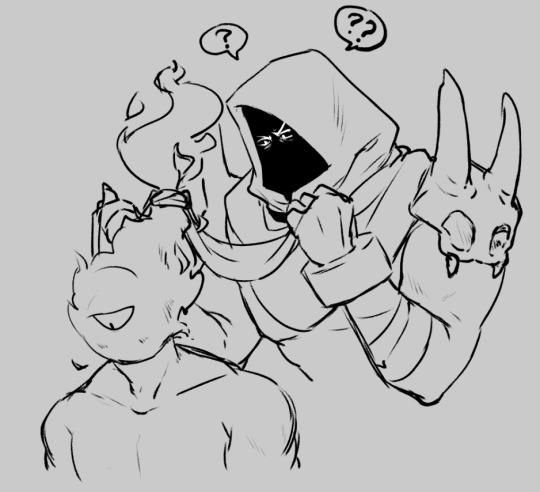


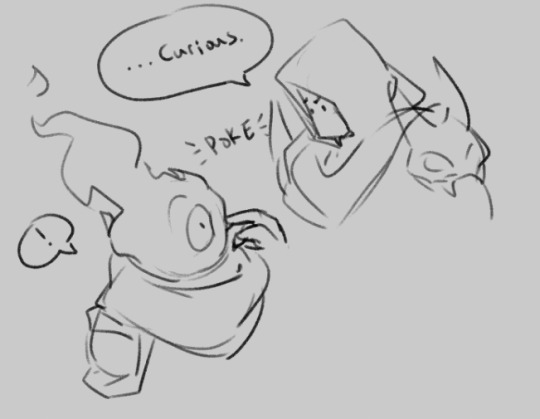


Bow problems (+ other nonsense)
#saroart#dead cells#the beheaded#the collector#they just wanted a nice bow#the collector can do a lot of stuff but i don't think he's good at bows#i was drawing a lot of antagonistic beheaded/collector content so i wanted to do some more cute junk#okay a lot is an exaggeration. still#need some guys being buds content sometimes#weird monster guys doing domestic shit is my favorite genre#i got a bonus at holiday time and im tempted to buy a tablet i can use portably#esp because holy fuck i don't know how to draw anymore#but also i just spent stupid money on tickets to live podcasts so i probably shouldn't#unrelated im very upset today because fucking UPS didn't ring my goddamn doorbell and so “”missed me“” and couldnt deliver my specialty meds#why must i get my meds through ups#because the us is a hellscape and i am beholden to my health insurance company#ups who has literally never managed to get a package to this apartment#tbh im stressed as fuck about having to go through this every goddamn month
119 notes
·
View notes
Text
i really need to get more people to listen to red valley, i’m suffering with not enough fan content to feed the hyperfixation gods
#fanfic writers listen to this thing#it’s awesome i promise#if you need something new here you go!! this is it!!#i have read most of the fics in the tag already and i am no longer a writer please i am begging#the fanart is peak though so go look at that if you need reasons why you should start it#red valley#the magnus archives#malevolent#the penumbra podcast#woe.begone#welcome to night vale#find us alive#audio drama
70 notes
·
View notes
Text

he is pathetic i think im enamored
#welcome to johnnys comic joirney. well not today i work but later.#i need to listen to this. well actually i need to listen to the last episode of ANOTHER podcast#the episode didnnt even come out recently idk why i havent listened to it i was on a streak but stopped? for no reason#but anyways i need to know miss tuesday. ok mr riddler is here too but hes not as swag yknow#i speak#dc#this is from the audio adventures special btw#riddler#and i still dont know how i want to tag comic posts. sigh!#SIGHHHH#miss tuesday
158 notes
·
View notes
Text
listening to the beginning of the new camlann ep where they're roasting marshmallows and talking about how nostalgic it is and thought "yeah but it's too bad they dont have all the stuff for s'mores. a roasted marshmallow by itself is good but does not BEGIN to have the power of nostalgic deliciousness of a full s'more" before remembering that one time my friend who is at a university in scotland held a bonfire and put out all the makings for smores and handed everyone sticks and was like "lets make smores! :D" and all the europeans were very confused until the other americans actually explained how smores worked and how to make them
like, it pains me to know that these characters have probably never experienced the exquisite mess that is smores. and even without the apocalypse, they probably wouldn't be able to find graham crackers and would have to use digestives. sad!
#listen america has its faults but we really got it right with smores#i will not be able to be at the twitch live listen of this episode so i have to get my dumb thoughts out here#also speaking of the twitch streams#ella you truly did deliver on explaining why i would not be allergic to kelpies despite being allergic to horses in this ep#anyway more of my friends need to listen to camlann so i can share my dumb thoughts with them#camlann#camlann podcast
50 notes
·
View notes